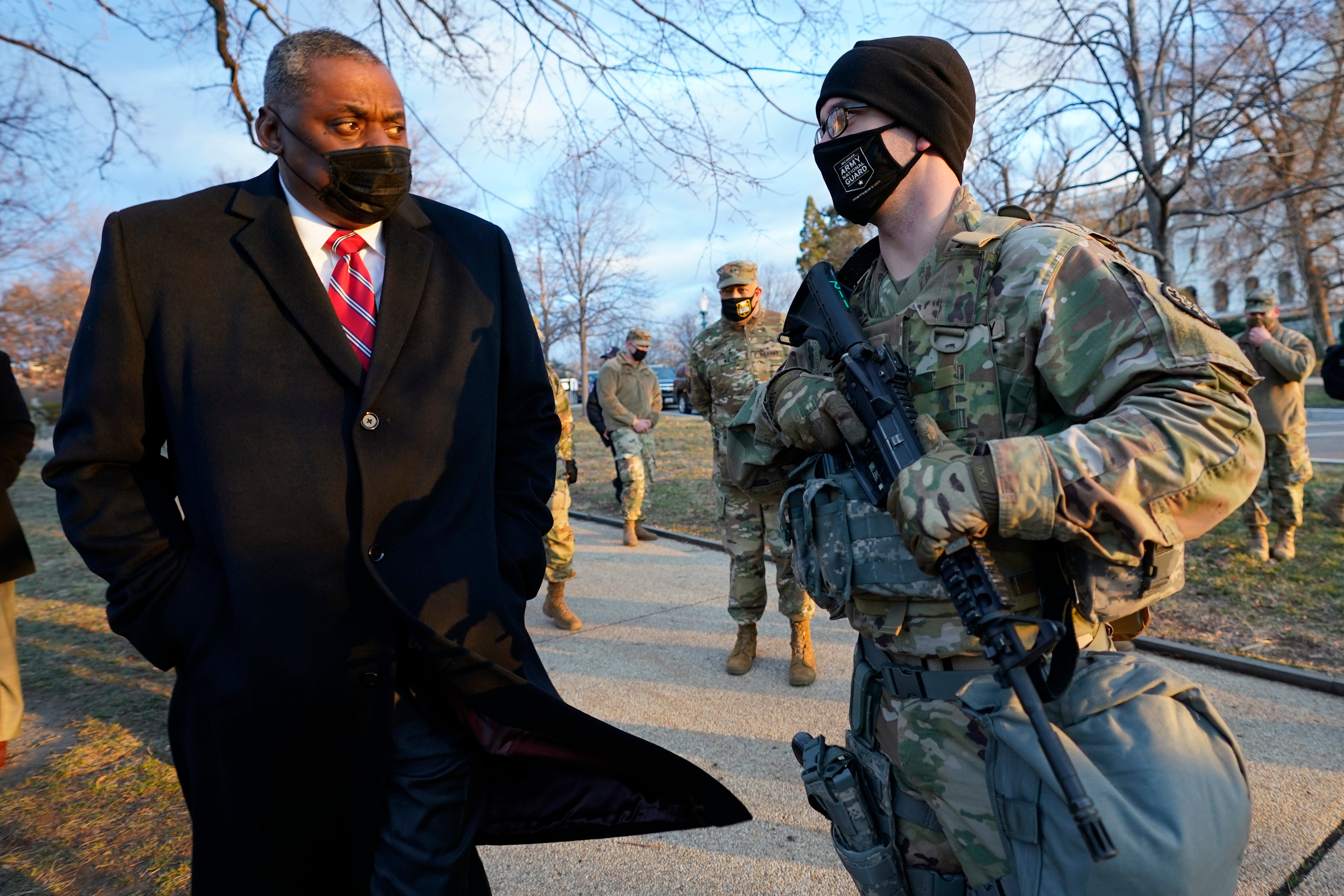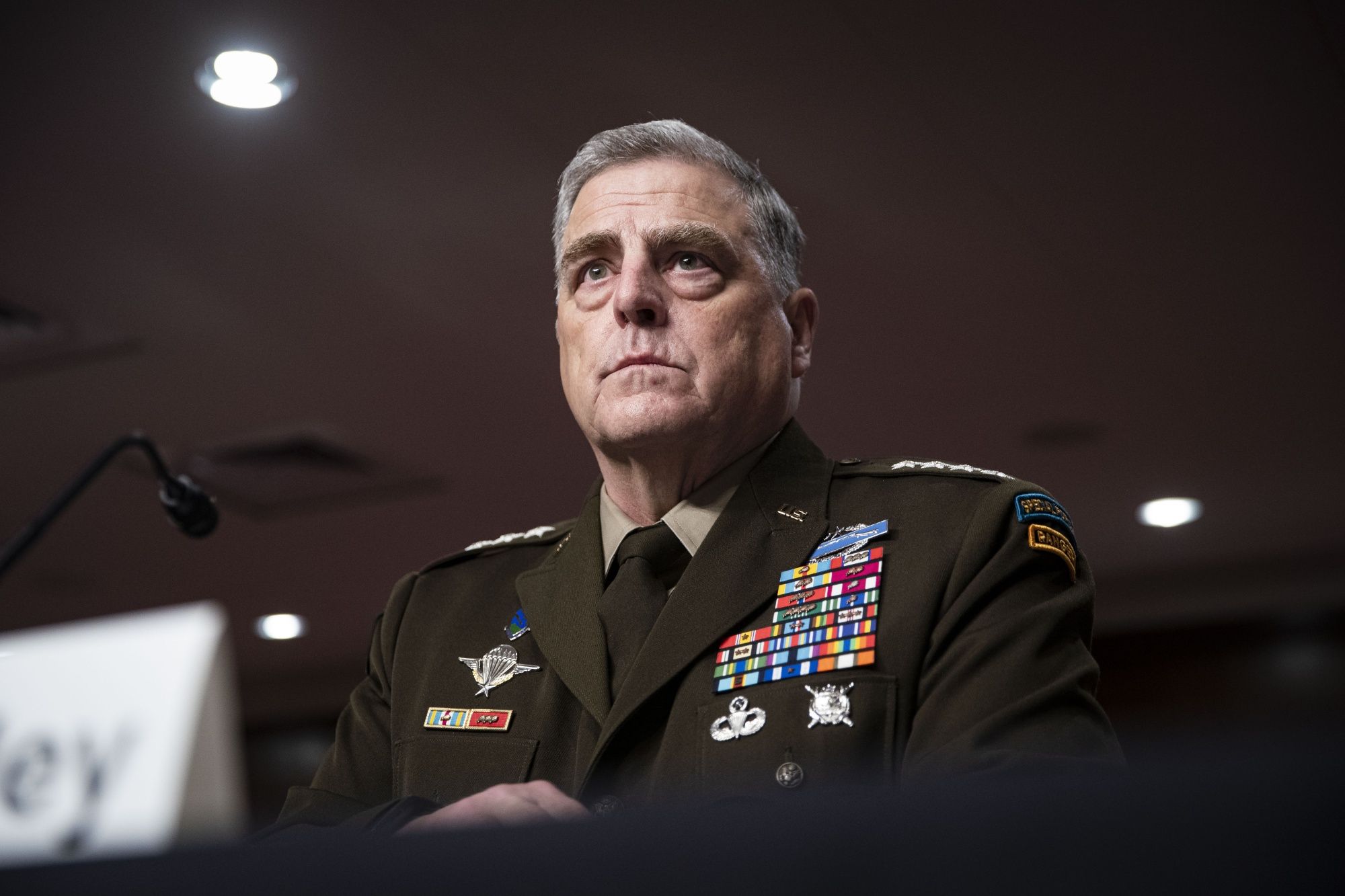



The DOD is going to kick somebody out of the military for retweeting or reposting something. “There’s a lot of pushback, like `this is overreaching. William Braniff, director of the National Consortium for the Study of Terrorism and Responses to Terrorism, said even with this leeway, he’s hearing complaints that service members’ First Amendment rights will be violated. “The new definition preserves a service member’s right of expression to the extent possible while also balancing the need for good order and discipline to affect military combat and unit readiness.” “The Department has always maintained a distinction between thoughts and actions,” Kirby said. Capitol Police officers outside the Senate Chamber inside the Capitol in Washington. 6, 2021 file photo, supporters of President Donald Trump, including Navy veteran Jacob Chansley, right with fur hat, are confronted by U.S. He also emphasized the department deliberately confines itself to prohibiting activity instead of ideology or political opinions.ĪP FILE - In this Jan. Pentagon Press Secretary John Kirby said in December that the DOD did not create a list of extremist groups service members shouldn’t join on grounds that organizations can disband or reform themselves. “It also means that you may be participating in other parts of the organization.” “The act of joining an organization and making that leap to become a member is already a sign that you're deeply enmeshed inside that organization's ranks,” he said. ”What they didn't do is add a prohibition of membership in white nationalist organizations.”īurghart calls the military’s banning of active participation while allowing membership a “distinction without a difference.” “Those changes are wholly insufficient to address the problem,” said Devin Burghart, executive director of the Seattle-based Institute for Research and Education on Human Rights. They cannot like or share an extremist tweet.īut some experts who study extremism argue the new rules don’t go far enough. The military’s new policies also spell out rules for what service members can do online. In December, the Department of Defense (DoD) updated its policy on radicalism to ban "active" participation in gangs or groups that advocate supremacist, extremist ideologies that discriminate based on race, religion or ethnicity.Īctive participation includes fundraising, attending rallies, recruitment and training. “I’m talking, of course, about extremism and extremist ideology, views and conduct that run counter to everything that we believe in and which can actually tear at the fabric of who we are as an institution.” “We need your help,” said Austin, who is the nation’s first Black defense secretary. In response to all of this, Defense Secretary Lloyd Austin asked members of the military’s rank and file during a speech last spring to do their part to stem extremism. In 2020, the FBI notified the Pentagon that nearly half of its 143 criminal investigations of current and former service members involved domestic extremism, according to the Center for Strategic and International Studies in Washington D.C. This is due in large part to the violence stemming from 2017’s “Unite The Right” rally in Charlottesville, Virginia, and the Jan. While there is a long history of extremism and white supremacy in the armed forces, there is increased worry about the extent to which these ideologies have in recent times taken hold among active duty members as well as veterans.Īrrests of people with military links for crimes related to extremist views rose 300% over the past decade, with most of that increase coming in the last several years, according to a recent study.


 0 kommentar(er)
0 kommentar(er)
